YouTube just launched YouTube Labs today, and the first thing they’re testing? AI music hosts that talk between your songs. It’s basically YouTube’s answer to Spotify’s AI DJ, which has been around for over two years now.
The feature they’re calling “Beyond the Beat” lets AI hosts drop commentary, fan trivia, and background stories about tracks while you’re listening to radio mixes and playlists on YouTube Music. You’ll see it as a sparkle icon sitting between the thumbs up/down buttons and the comment button, giving you control over when you actually want to hear these AI-generated interjections.
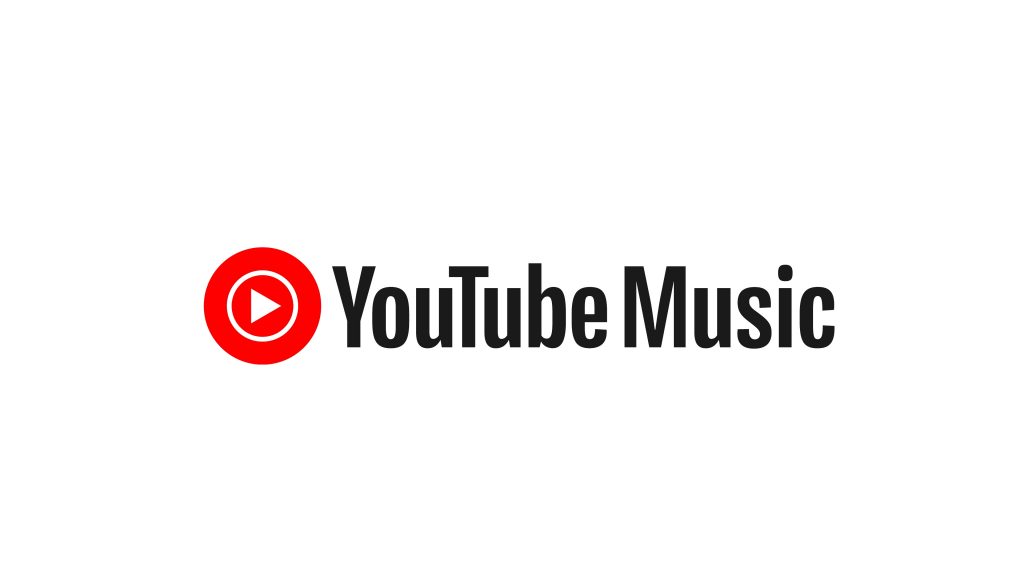
Playing Catch-Up in the AI DJ Space
Here’s the thing—Spotify launched their AI DJ feature more than two years ago, and they’re claiming user engagement with it has nearly doubled in the past year alone. YouTube’s timing here feels deliberate. Every streaming platform is rushing to add personalized AI features, and YouTube clearly doesn’t want to get left behind.
“These AI hosts will share relevant stories and insights as you listen to radio and mixes,” YouTube wrote in today’s blog post. If you get annoyed by the interruptions, you can turn off the commentary for an hour or an entire day. That’s actually a smart move, since nobody wants their music session derailed by unwanted chatter.
YouTube includes a disclaimer that “AI commentary may contain errors,” which is refreshingly honest. They’re acknowledging this is experimental and explicitly asking for user feedback to improve it.
Who Actually Gets to Try This?
Right now, YouTube Labs is only accepting a “limited number of participants from the US,” with Premium subscribers getting priority access to test experimental features before wider rollout. The program runs separately from Google Labs—it’s focused exclusively on YouTube stuff, not Google’s broader AI initiatives.
This Premium-first approach matches YouTube’s recent strategy of using paid subscriptions as a testing ground. Earlier this year they rolled out several Premium-exclusive features including high-quality audio for music tracks, playback speeds up to 4x, and a Jump Ahead feature for smart TVs and gaming consoles.
What Early Testers Are Actually Experiencing
Some users on Reddit are already encountering the AI hosts in the wild. One tester mentioned the feature provides “meaningful summaries” of tracks but occasionally plays “weird static noises instead of speech.” The commentary appears roughly every five songs rather than after each track, which probably helps keep things from getting annoying.
That static noise issue sounds like a bug that needs fixing, but at least YouTube isn’t pretending this is polished and perfect. The whole point of YouTube Labs is to test stuff before wide release.
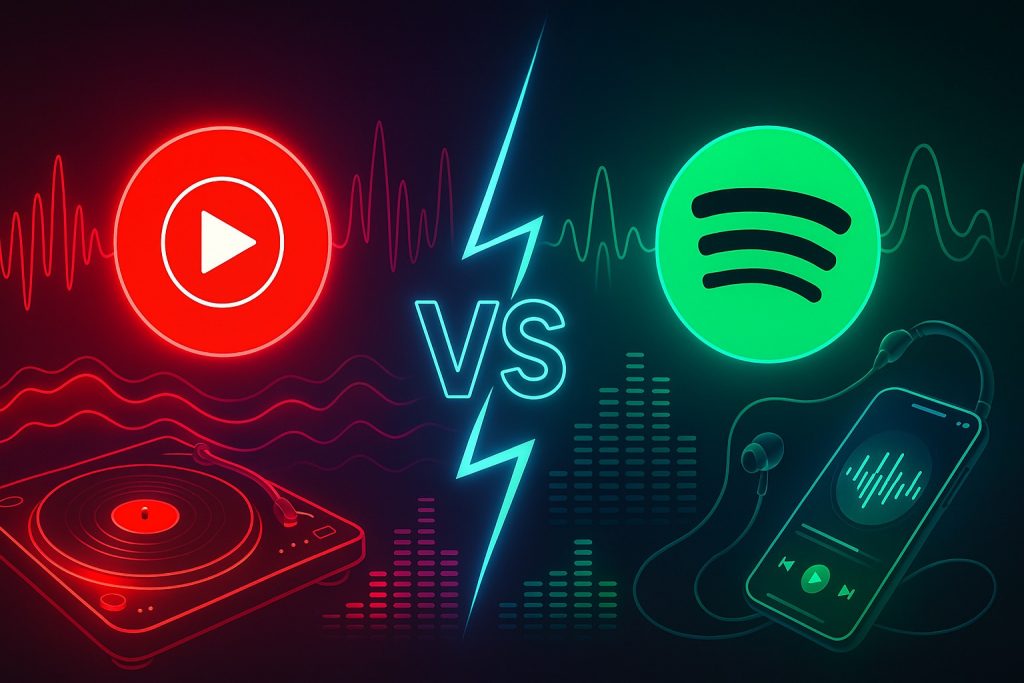
The Real Competition Here
Spotify’s AI DJ has had two years to refine its approach, build user habits, and gather massive amounts of feedback data. YouTube is entering this race late, which means they need to deliver something noticeably better or at least different enough to matter.
The advantage YouTube has? A massive existing user base on YouTube Music and integration with the world’s largest video platform. If they can tie music discovery to video content in interesting ways—artist interviews, music videos, behind-the-scenes footage—that could differentiate their AI hosts from Spotify’s purely audio experience.
But there’s also risk here. Music listeners can be particular about their listening experience. Some people want zero interruptions. Others might enjoy occasional context but find AI-generated commentary feels artificial or awkward. YouTube needs to nail the balance between informative and intrusive.
Why Premium Subscribers Matter
Giving Premium users first access serves multiple purposes. It rewards paying customers with exclusive features, creates urgency for free users to upgrade, and ensures the people testing experimental features are invested enough in the platform to provide thoughtful feedback.
It also means YouTube can limit the scale of potential problems. If the AI hosts say something embarrassing or the feature has major bugs, at least it’s only affecting a subset of Premium users rather than the entire platform.
The limited US rollout makes sense too—testing in one market with one language reduces complexity while they work out the kinks. Expanding to other countries and languages will require training AI hosts for different music cultures and contexts.
What This Means for Music Streaming
We’re clearly entering an era where AI curation and commentary become standard features across streaming platforms. Spotify proved there’s appetite for AI DJ functionality. YouTube’s entry validates the concept further. Apple Music, Amazon Music, and others will likely follow with their own versions.
The question is whether these AI hosts actually enhance the listening experience or become another feature most people disable after trying once. Spotify’s engagement numbers suggest it’s working for them, but YouTube’s execution will determine whether they can replicate that success or if being late to the party means they’re just adding a me-too feature nobody really wanted.
For now, if you’re a Premium subscriber in the US and want to try having an AI host narrate your music sessions, you can sign up for YouTube Labs and see what all the fuss is about. Just don’t be surprised if you occasionally hear weird static instead of insightful commentary.
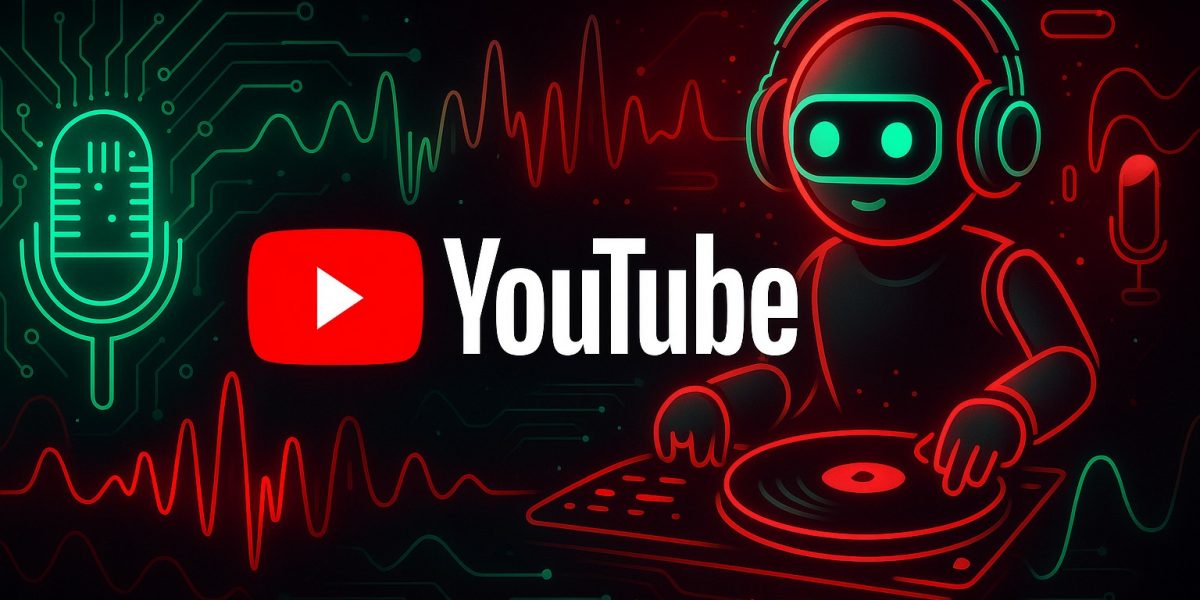
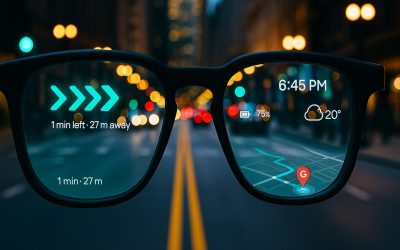

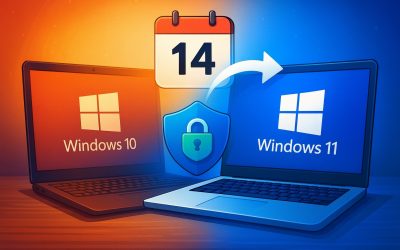
Post a comment